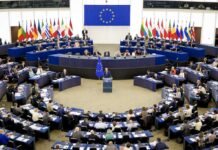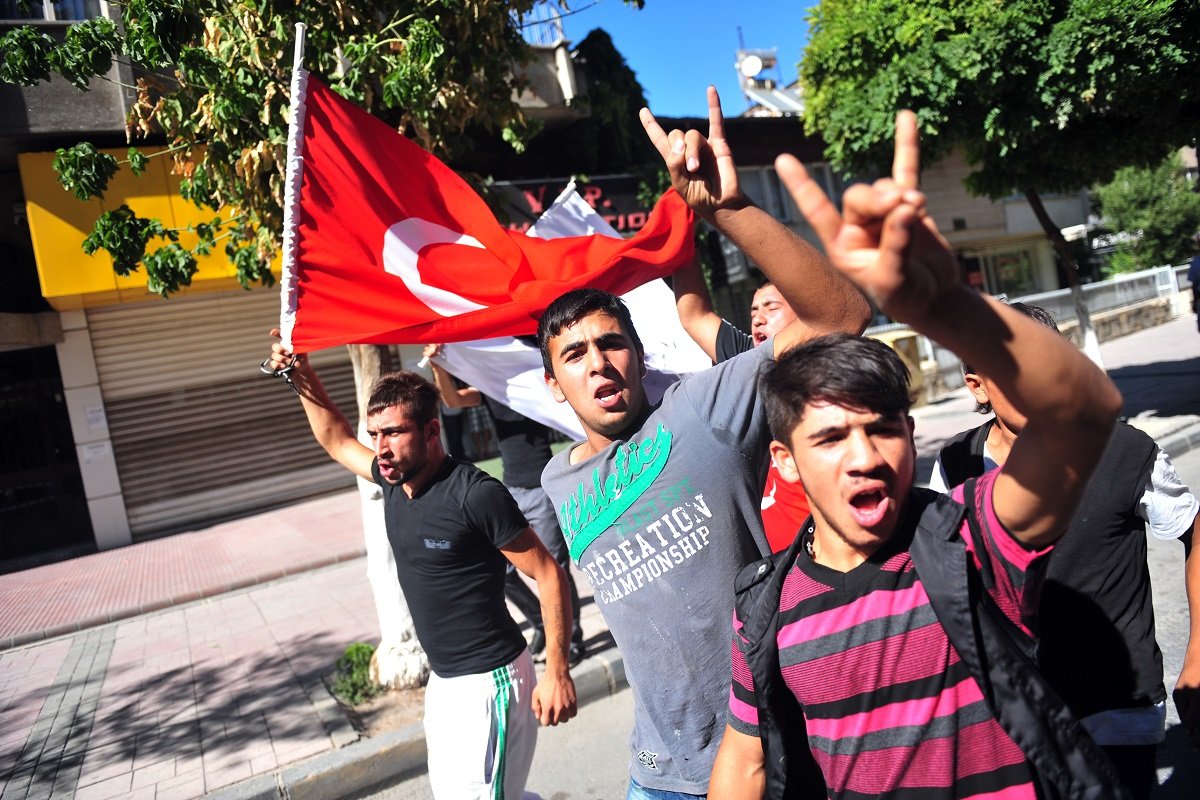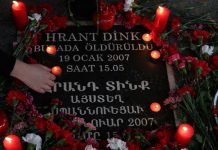The US State Department highlighted the massive violations of religious freedom and rights by the Turkish government in its annual International Religious Freedom Report, which was released on Wednesday.
“The government continued to limit the rights of non-Muslim religious minorities, especially those not recognized under the government’s interpretation of the 1923 Lausanne Treaty, which includes only Armenian Apostolic Orthodox Christians, Jews, and Greek Orthodox Christians,” according to the report.
The State Department submits the annual report to Congress under the International Religious Freedom Act of 1998. The report describes the status of religious freedom in every country and covers government policies violating religious belief and practices of groups, religious denominations and individuals, and US policies to promote religious freedom around the world.
Alevism treated as a heterodox sect
According to the report, the government of President Recep Tayyip Erdoğan continued to treat Alevism as a heterodox Muslim “sect” and not recognize Alevi houses of worship (cemevis), despite a ruling by the Supreme Court of Appeals that cemevis are places of worship. Alevis also raised concerns about several of the government’s education policies. The Turkish government continued not to comply with a 2013 European Court of Human Rights (ECtHR) ruling that found the government’s compulsory religion courses in public schools violated educational freedom.
Rights of non-Muslim minorities limited
The report mentions several problems experienced by non-Muslim minorities, especially those that are not recognized by the government as covered under the 1923 Lausanne Treaty. One of them is the difficulty they have in opening or operating houses of worship due to bureaucratic hurdles.
Training clergy inside Turkey is another important problem because of the restrictions imposed by the government on religious groups other than Sunni Muslims from training clergy inside the country: “Because of a lack of seminaries within the country, the Greek Orthodox and Armenian Orthodox Patriarchates remained unable to train clergy. The Greek Orthodox Halki Seminary remained closed. Protestant churches also reported [that] an inability to train clergy in Turkey made their communities dependent on foreign clergy.”
Turkish government’s refusal to recognize Ecumenical Patriarch Bartholomew I as the leader of the world’s approximately 300 million Orthodox Christians, citing the lack of any legal obligation to do so, is also mentioned in the report.
The unequal treatment of followers of different religions in terms of public funding of houses of worship is also highlighted in the report: “The Diyanet [Religious Affairs Directorate, a state institution governing and coordinating religious matters related to Islam] regulated the operation of all registered mosques. It paid the salaries of 107,206 Sunni personnel at the end of 2018, the most recent year for which data were available, compared with 109,332 in 2017. The government did not pay the salaries of religious leaders, instructors, or other staff belonging to other religious groups.”
The report also mentions the criticism raised against the Turkish government’s involvement in the election process of the apostolic patriarch of Istanbul: “[M]ultiple Church officials and rights groups widely criticized the regulations, stating they infringed on the community’s religious freedom by limiting eligible candidates to bishops currently serving within the patriarchate.”
Religious education and rising number of imam hatip religious schools
Some of the most contentious issues for non-Sunni and secular Muslims are highlighted in the report. One of them concerns compulsory religious instruction in schools: “[Parents] continued to face difficulty obtaining exemptions from compulsory religious instruction in primary and secondary schools and often had to choose from electives dealing with different aspects of Sunni Islam, particularly if their identification cards listed their religion as Muslim.”
According to the report, a number of parents also criticized the practice of converting some non-religious public schools into imam hatip religious schools: “Sources said this created a hurdle for those preferring to attend secular public schools because the number of imam hatip middle schools increased by more than one hundred and the number of students by nearly 40,000 for the 2018-2019 academic year, according to official statistics.”
Anti-Semitism continued to increase
Rise of anti-Semitism has also been highlighted in the report: “Some pro-government news outlets published conspiracy theories involving Jews and blamed Jews for the country’s economic difficulties and potential sanctions. During the campaign for Istanbul mayor, altered images of opposition CHP Party candidate Ekrem Imamoglu showing him shaking hands with Israeli Prime Minister Benjamin Netanyahu and meeting with a group of Orthodox Jews appeared on social media in an effort to discredit him, according to commentators.”
Citing a study by the Hrant Dink Foundation, a non-profit named after a slain Armenian-Turkish journalist, the report states that “there were 430 published instances of anti-Jewish rhetoric in the press between January and August depicting Jews as violent, conspiratorial, and a threat to the country.” It also underlines that throughout the year, “Anti-Semitic discourse continued in public dialogue, particularly on social media. In July a video posted on social media showed children at an apparent summer camp being led in chants calling for ‘death to Jews’.”
Hagia Sophia should preserve its multireligious history
The report underlined the importance of the preservation of Hagia Sophia, a Greek Orthodox Church in İstanbul converted first to a mosque after the conquest of İstanbul and later to a museum after establishment of the republic, and its complex multireligious history. “Senior U.S. government officials continued to publicly, and privately with government officials, express their understanding of the Hagia Sophia as a site of extraordinary significance, and to support its preservation in a manner that respects its complex multireligious history. They underscored the importance of the issue with government officials and emphasized that the Hagia Sophia is a symbol of peaceful coexistence, meaningful dialogue, and respect among religions,” the report noted.
No mention of the Gülen movement
Unlike previous years, this year’s report does not mention the rights violations experienced by members of the faith-based Gülen movement, a dissident group that has long been targeted by the government of President Erdoğan. In contrast, the 2016, 2017 and 2018 annual reports all highlighted the persecution experienced by those who are thought to be affiliated with the movement. A section of last year’s report read: “[F]ollowing the July 2016 coup attempt, the government arrested more than 80,000 individuals with alleged ties to a Muslim cleric and political figure Fethullah Gulen – whom the government blamed for the attempted putsch – including U.S. citizen and Pastor Andrew Brunson.”
The Turkish government accuses the Gülen movement of masterminding the attempted military coup of July 15, 2016, and labels it as a “terrorist organization.” The movement strongly denies involvement in the coup attempt or any terrorist activity. Since the coup attempt, more than 150,000 public servants have been removed from their jobs, over 500,000 people have been investigated on terrorism charges and more than 90,000 have been arrested.
Background
The text of the report is drafted by US embassies around the world based on information from government officials, religious groups, nongovernmental organizations, journalists, human rights monitors, academics, media and others. “The Office of International Religious Freedom, based in Washington, collaborates in collecting and analyzing additional information, drawing on its consultations with foreign government officials, domestic and foreign religious groups, domestic and foreign nongovernmental organizations, multilateral and other international and regional organizations, journalists, academic experts, community leaders, and other relevant U.S. government institutions.”
The full text of the report can be accessed here.














[…] its 2019 International Religious Freedom Report, the US State Department said the government of President Erdoğan continued to treat Alevism as a […]
[…] its 2019 International Religious Freedom Report, the US State Department said the government of President Erdoğan continued to treat Alevism […]